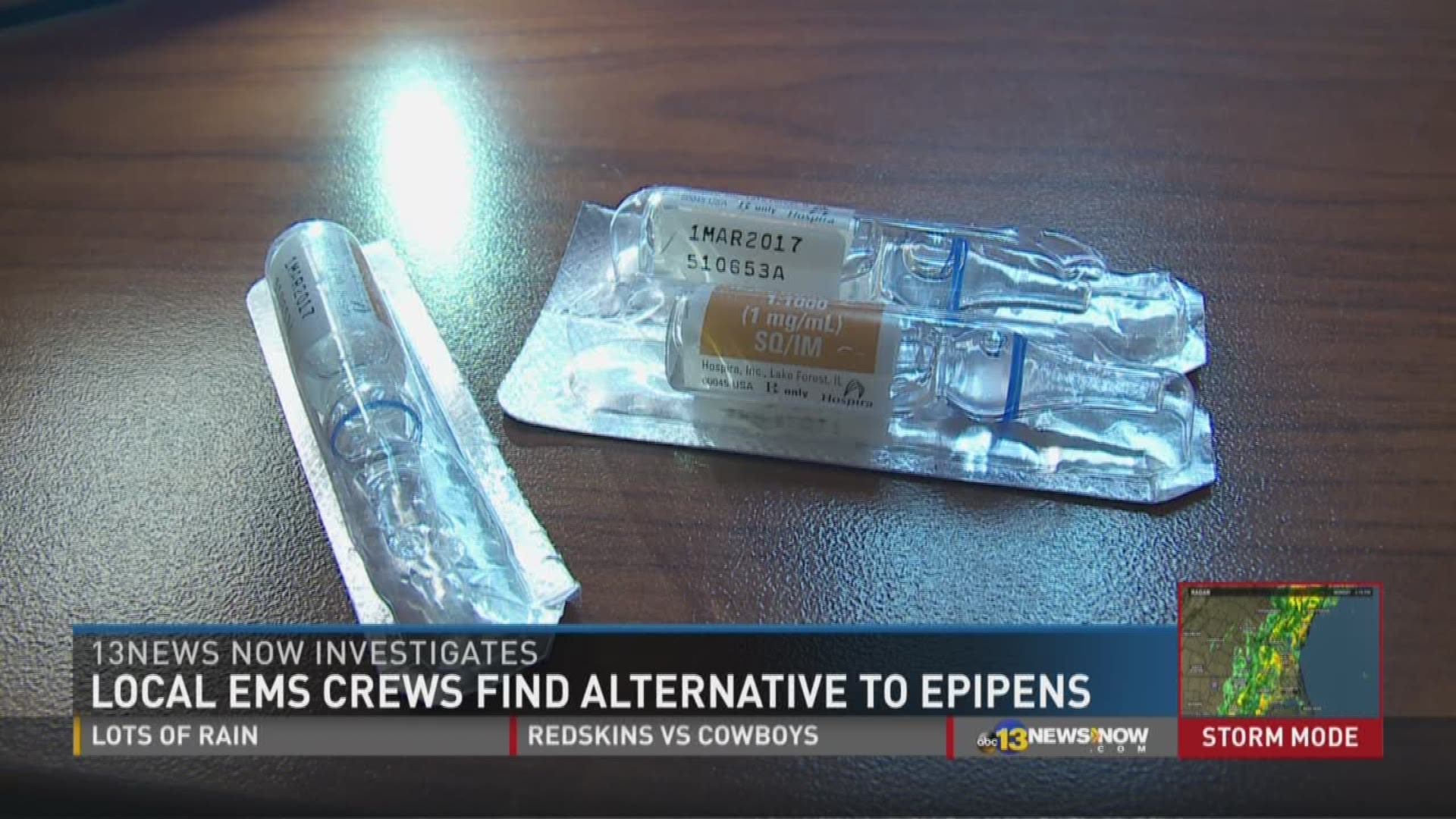Emergency Medical Services agencies across the country are having to come up with alternatives to costly EpiPens in order to save lives when someone is having an allergic reaction. Parents have expressed outrage at the rising price of the crucial medicine, now first responders are figuring out if they can afford the drug in tight budget times.
In Hampton Roads, 13News Now has learned in order to get patients that lifesaving medicine quickly, most of our first responders are using a different drug delivery system altogether... one that costs a fraction of the price and never comes from the taxpayer-funded budget.
When the call comes into 911 that someone is having a life-threatening allergic reaction, Virginia Beach EMS crews rush to help.
“Epinephrine is the primary medicine, the only medicine that will be able to quickly reverse a severe anaphylactic reaction,” explained Beach EMS Division Chief Bruce Nedelka.
The drug ampule might look different than what you're used to seeing. Epinephrine is the drug inside EpiPens. Beach paramedics deliver that same drug, just in a different system.
A paramedic will break open the ampule, use a filter connected to a syringe to make sure there are no glass particles, and then connect a needle to go into the muscle to give the patient the Epinephrine.
That method, which is how Beach crews and many other EMS agencies in Hampton Roads have always given Epinephrine, also makes a huge difference in cost.
The auto-injector technology is what makes the EpiPen so expensive. Without that, drug itself is relatively cheap. The cost difference is more than $600 versus a few dollars.
Since budgets are tight in almost every locality, Nedelka can understand the financial concerns.
“Every agency will have an operations medical director and they have operations chiefs, so if they believe there is a change that's necessary, then maybe they evaluate their system and look at other options,” he suggested.
West of Hampton Roads, Amelia County Emergency Squads are doing that right now. They've decided to no longer carry EpiPens and are now looking for another alternative.
King County in Washington told our sister station in Seattle the switch to the syringe-vial system saved about $150,000 in the first year and is now saving $250,000 annually.
Even with the lesser costs in our area, the expenses never get passed along to the taxpayer, because they're not part of the department budget. Most agencies in Hampton Roads and all of Virginia use a hospital drug exchange program.
The ambulances have drug boxes that are stocked by hospital pharmacies. If crews use a drug like Epinephrine on a call, when they drop off the patient at the hospital, they also exchange the drug box for new supplies.
“The system has it worked out with the pharmacist and the hospitals, so once they get into the hospital system and they do their paperwork, it's worked out through the hospitals and the patient's insurance,” Nedelka added.

